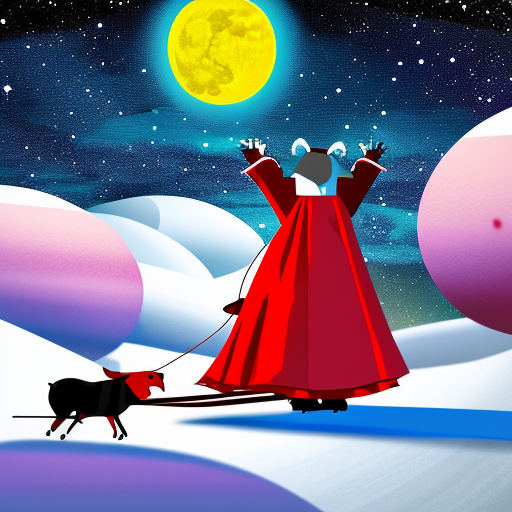One-line summary:
In Terry Pratchett’s “Hogfather,” Death takes on the role of the Hogfather to save the holiday season, while Susan Sto Helit investigates a plot to eliminate belief in the Hogfather.
The Plot:
In the Discworld, a fantastical realm created by Terry Pratchett, the Hogfather is the equivalent of Santa Claus. He brings presents to children on Hogswatchnight, the Discworld’s version of Christmas. However, this year, the Hogfather has gone missing, and Death, the anthropomorphic personification of mortality, takes on the role to ensure the holiday season goes smoothly.
Meanwhile, Susan Sto Helit, Death’s granddaughter, is drawn into the mystery surrounding the Hogfather’s disappearance. As a governess, Susan is used to dealing with unruly children, but she soon finds herself facing supernatural creatures and a plot to eliminate belief in the Hogfather. With the help of the Death of Rats and the oh god of hangovers, Susan sets out to save the holiday and restore belief in the Hogfather.
The Themes:
The Power of Belief:
One of the central themes in “Hogfather” is the power of belief. Belief shapes reality in the Discworld, and without belief in the Hogfather, the holiday season is in jeopardy. Pratchett explores how belief can influence individuals and societies, highlighting the importance of imagination and wonder in our lives.
Questioning Traditions:
Pratchett also delves into the idea of questioning traditions. Through Susan’s investigation, the book challenges the notion of blindly following customs and rituals without understanding their origins or purpose. It encourages critical thinking and the examination of long-held beliefs, even in the face of fantastical events.
The Nature of Death:
As with many of Pratchett’s works, “Hogfather” explores the nature of Death. Death is portrayed as a complex character who grapples with existential questions and the meaning of his existence. Through his interactions with humans and his role as the Hogfather, Death learns more about the nature of humanity and the importance of compassion.
Key Takeaways:
- The power of belief can shape our reality and influence our lives.
- Questioning traditions and customs is essential for personal growth and understanding.
- Death is a complex character who learns about humanity through his interactions.
A Memorable Quote:
“Real children do not go hoppity skip unless they are on drugs.” – Terry Pratchett, Hogfather
In “Hogfather,” Terry Pratchett weaves a humorous and thought-provoking tale that explores the power of belief, the importance of questioning traditions, and the nature of Death. Through the character of Susan Sto Helit, readers are taken on a journey filled with supernatural creatures, philosophical musings, and a race against time to save the holiday season.
Pratchett’s witty writing style and clever wordplay add depth to the narrative, making it an enjoyable read for fans of fantasy and satire. The book’s examination of belief and tradition encourages readers to question their own beliefs and consider the impact of their actions on the world around them.
At its core, “Hogfather” reminds us of the importance of imagination and wonder in our lives. It reminds us that traditions and customs should not be blindly followed but should be examined and understood. And it reminds us that even Death, the embodiment of mortality, can learn and grow through his interactions with humanity.
So, as you delve into the pages of “Hogfather,” prepare to be entertained, enlightened, and perhaps even inspired to question the world around you. After all, as Terry Pratchett himself once said, “Real children do not go hoppity skip unless they are on drugs.”












